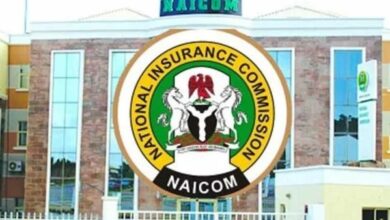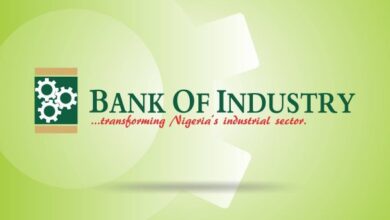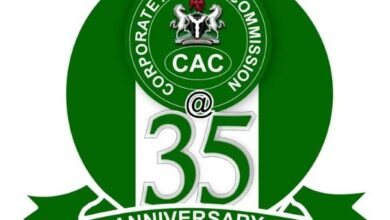NNPC Weekly: Company subsidiary expands business portfolio with ₦12bn profit

The weekly activities of the Nigerian National Petroleum Company Limited (NNPC Ltd.) started with one of its subsidiary, the Petroleum Products Marketing Company (PPMC), brandishing an impressive financial record of N12.95 billion profit.
The profit was for the year ended Dec. 31, 2021 representing a 260 per cent increase over its net profit of N3.59 billion in 2020.
Mr Umar Ajiya, the Alternate Chairman of PPMC Board of Directors and Chief Financial Officer (CFO) of NNPC Ltd., disclosed this during the company’s 32nd Annual General Meeting (AGM) which held in Abuja.
Ajiya said that the leap in profit was due to the adoption of a commercial mindset in the company’s operation, a quality he said was required for survival in today’s business environment.
He disclosed that the company also achieved 85 per cent reduction in demurrage cost from 64.9 million dollars in 2020 to 9.46 million dollars in 2021 due to effective vessels/cargo programming and increased PMS demand.
He noted that the figure surpassed the target of 50 per cent demurrage cost reduction that had been set for the year.
Ajiya listed some of the company’s achievements for the 2021 financial year to include sustenance of products supply sufficiency, zero fuel queues throughout the year with peaceful industrial harmony, and automation of business processes.
On the outlook for the future, the CFO informed that PPMC was looking at expanding its products portfolio.
The Minister of State for Petroleum Resources, Chief Timipre Sylva, who disclosed this said the Federal Executive Council (FEC) gave the approval at its weekly meeting presided over by Vice-President Yemi Osinbajo in Abuja.
Speaking at a press briefing after the meeting, Sylva explained that the cost of the Nigeria-Morocco Gas Pipeline was yet to be determined as it was still at the Front End Engineering Design (FEED) stage which normally precedes cost evaluation.
“The ministry of petroleum resources presented three memos to the council.
“In the first memo, the council approved for the NNPC Ltd. to execute MoU with ECOWAS for the construction of the Nigeria-Morocco gas pipeline.
“This gas pipeline is to take gas to 15 West African countries and Morocco and through Morocco to Spain and Europe.”
According to the Minister, FEC also approved the sum of N3.8 billion for the construction of a switch-gear room and installation of power distribution cables and equipment for the Nigeria Oil and Gas Park in Ogbia, Bayelsa State.
He said the park was designed to support local manufacturing of components for the oil and gas industry.
He said the third memo approved by FEC was for various contracts including the construction of an access road and bridges to the Brass Petroleum Product Terminal (BPPT) in the Niger Delta for N10.5 billion including 7.5 per cent Value Added Tax (VAT).
The projects are Section II of the Suleja – Minna Road and the Agaei – Baro Road which are for dualisation and construction respectively.
Director Highways Construction and Rehabilitation, Federal Ministry of Works and Housing, Mr Folorunsho Esan, gave the assurance during an inspection tour of the roads.
A statement by the Director of Press and Public Relations, Ministry of Works and Housing, Blessing Lere-Adams, disclosed that the Ministry was satisfied with the pace and quality of work on the roads.
On the Suleja – Minna Road, Esan was quoted as saying: “My impression is that the contractor is on the site making progress and we can see the various aspects of work, the earthwork, the pavement work and even the asphalt laying is going on smoothly.
“The only challenge is that of security but it is being taking care of with the presence of security agents”.
Speaking on the 52-kilometre Agaei – Baro Port Road which connects the Lambata – Bida highway, Esan said: “Work is progressing, 14kilometres have been asphalted, earthwork is up to 32 kilometres and the rest which is about 18 kilometres is still outstanding but we have the assurance that the work will be delivered on target”.
The Director said the road when completed would boost the economy of the North Central region in particular and the nation in general as it led to the Baro Port through which goods and services can be brought into the country and exported to other countries.
The two roads were among the other 21 critical roads selected for funding by the NNPC because of their importance to the economy of the nation, especially in terms of the movement of petroleum products across the country.
The contractors working on both projects also expressed confidence that the projects would be completed and delivered on target as funding was readily available.

The Chief Financial Officer of the NNPC Ltd., Mr Umar Ajiya, said within the week that the NNPC-Gas and Power Investment Company (NGPIC) would leverage on the opportunities provided by the Presidential Power Initiative (PPI) roadmap for the electricity sector to boost company’s cash flow.
This is in line with the current reality of the Petroleum Industry Act (PIA),
Speaking at the 2nd Annual General Meeting (AGM) of the NGPIC, Ajiya, who is also the Chairman of the company’s Board of Directors, said NGPIC was determined to harness the potentials in both brownfield and greenfield portfolios to expedite business growth.
He disclosed that having achieved significant milestones in the Brass Fertilizer and Petrochemical Project, NGPIC would soon sign the Financial Closure agreement to commence the Engineering Procurement and Construction (EPC) of the integrated 10,000 Metric Ton Per Day (MTPD) Methanol Plant.
While commending the management and staff of the company for their commitment to the growth and development of the company, Ajiya urged all stakeholders to put in more effort towards improving on the current profit after tax, which stood at 1.81 billion naira for the year ended Dec. 31 2021.
Ajiya listed some of the achievements of NGPIC to include, completion of its 2nd Audited Financial Statements with improved profitability; completion and successful synchronisation of two Gas Turbines for the 450MW Okpai Phase 2 Independent Power Plant at Kwale, Delta State.
Others were the production of additional 320MW from the Phase 2 of the 450MW IPP ready to be wheeled into the national grid; and the take-over of management of Okpai and Afam VI JV IPPs for business profitability, among others.
Speaking on the contributions of the company to the overall objective of the NNPC, the Managing Director of NDPIC, Dr Jamari said efforts were on to position the business entity towards becoming strategic revenue stream, emphasising that NGPIC had enough potentials to increase the bottom line of the nation’s oil company.
“One thing I will assure the public is that by the time we conclude our activities in terms of acquiring some additional power plants and building some others, this and company will be the strongest company in future in the portfolio of subsidiaries of the NNPC Ltd”.
NNPC Gas Power Investment Company Ltd. (NGPIC) is a subsidiary of the NNPC Ltd.
It was incorporated on July 21, 2016 and commenced business in 2020 with main focus on power generation and other gas and power investment services.
Kyari disclosed this while addressing Nigerian and Spanish business leaders on investment opportunities in the Nigerian Oil and Gas Industry, in Madrid, Spain, on the sidelines of President Muhammadu Buhari’s state visit to Spain, Wednesday.
Buhari had earlier met with the Spanish President, Pedro Sanchez, King of Spain, His Majesty, King Filipe VI, and gave a speech at the headquarters of the World Tourism Organisation (WTO), in Madrid.
During the visit, Buhari said Nigeria looked forward to increasing bilateral relations with Spain, even as he signed bilateral agreements and Memorandum of Understanding (MoUs) with the Spanish leader, covering areas of prisoner transfer, sports and culture and the economy.
Describing the partnership between Nigeria and Spain as an important one for the NNPC, GMD/CEO said “26 per cent of all LNG produced in Nigeria end up in Spain, while 14 per cent of all Crude Oil produced in Nigeria end up in this country; clearly for us as a business, it is an important market for my company.”
Kyari explained that the world would need energy for today and for the future, in industries such as power, IT and automobile.
“We know that energy transition is real. We know that net-zero by 2050-2060 is real.
“But it doesn’t mean zero hydrocarbons in 2050-2060; it means that you are going to have a cleaner use of hydrocarbons,” Kyari added.
He said investors must see where their money can come out from and when they invest, they must see that they can recover their cost and make some margin from it.
While noting that in line with global acceptance of gas as a transition fuel, Nigeria had since declared 2021-2030 as the decade of gas.
“In our country today, we have a legislation that has clearly created a commercial National Oil Company which will be unveiled by our President in the coming days.
“Together with the Spanish business community, I am confident we can build this industry,” Kyari said.

Meanwhile, the Organisation of the Petroleum Exporting Countries (OPEC) raised Nigeria’s oil production quota from the 1.772 million barrels per day (mbpd) target approved in June to a new target of 1.799mbpd for July.
A statement issued by OPEC said the decision was taken at its 29th OPEC and non-OPEC Ministerial Meeting.
The new target is 27,000bpd higher than the approved quota for June.
READ ALSO:https://brandeconomy.com.ng/national-single-window-remains-our-focus-maritime-agencies/
According to the statement, OPEC+ also adjusted upward the monthly overall production by 648,000bpd for the month of July with a target production of 43.206mbpd.
The statement said: “The 29th OPEC and non-OPEC Ministerial Meeting was held via videoconference on June 2.
“The meeting noted the most recent reopening from lockdowns in major global economic centres. It further noted that global refinery intake is expected to increase after seasonal maintenance.
“The meeting highlighted the importance of stable and balanced markets for both crude oil and refined products”.
It said the meeting extended the compensation period until the end of December as requested by some underperforming countries, and requested that underperforming countries submit their plans by June 17.
The statement added that the meeting directed that compensation plans should be submitted in accordance with the statement of the 15th OPEC and non-OPEC Ministerial Meeting.
The figure is 70,000bpd higher than the average crude oil production in April, which stood at 1.35mbpd.












